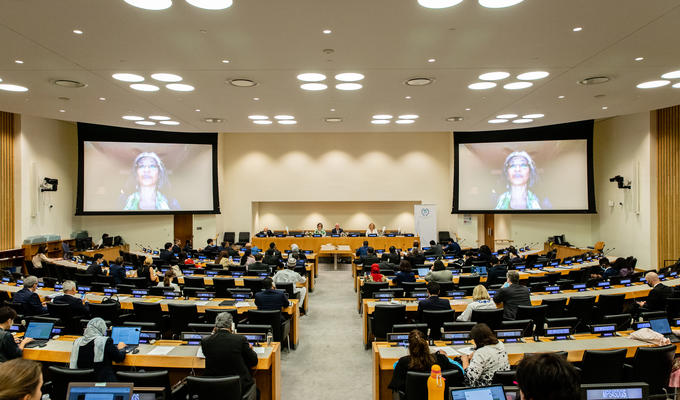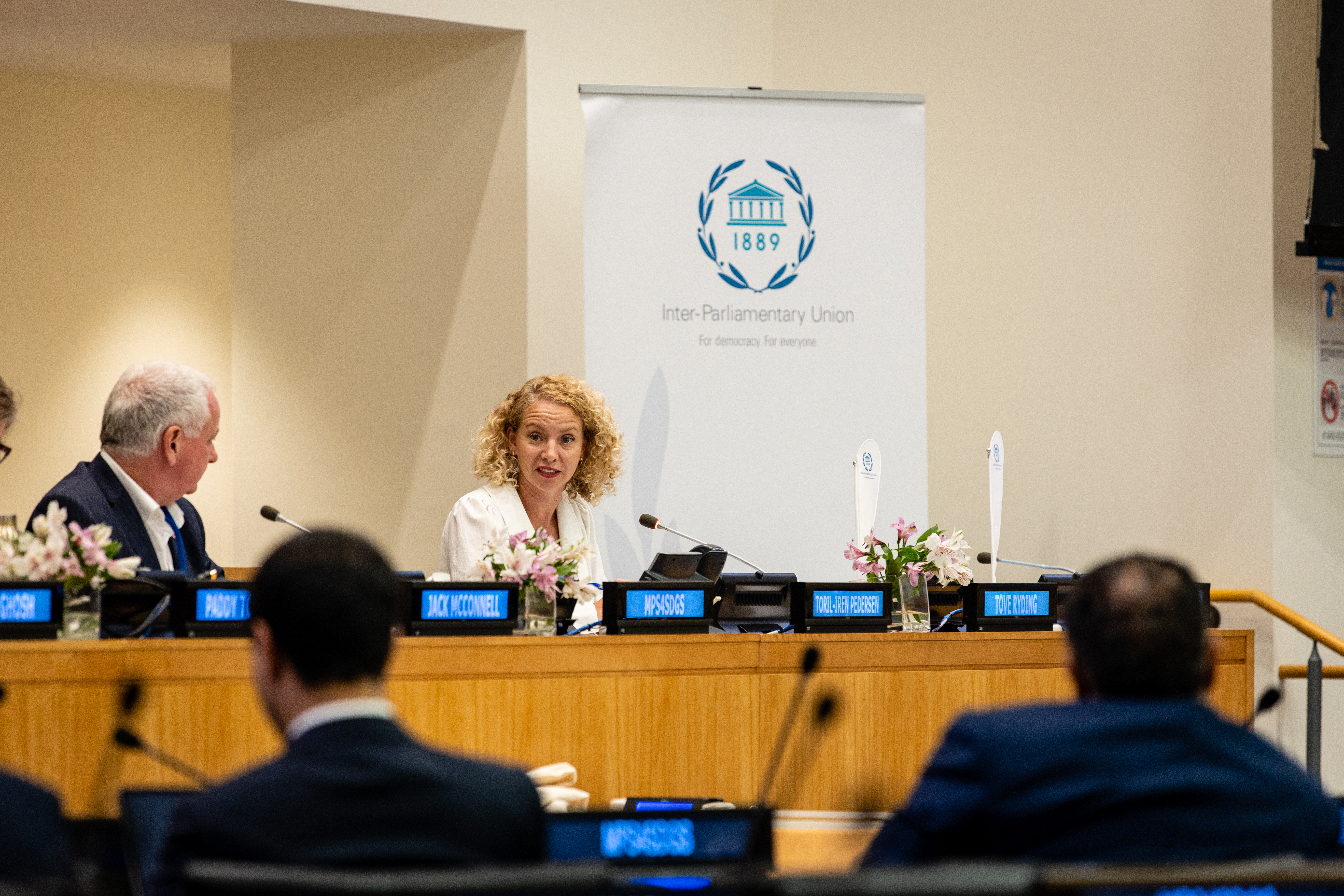ATI participates in the Parliamentary Forum at the 2022 UN High-Level Political Forum on Sustainable Development

In a bid to ensure that there is a follow-up mechanism for the implementation and achievement of the 2030 Agenda, the UN instituted the annual High-Level Political Forum (HPLF) on Sustainable Development. The HLPF connects state and non-state actors to review and discuss previous efforts and advances needed towards attaining the 17 Sustainable Development Goals (SDGs). As a special event of the HLPF, the Parliamentary Forum brings together members of parliament attending the HLPF as part of ministerial delegations.
Improving domestic resource mobilisation (DRM) is critical to achieve the SDGs and requires stronger international cooperation. While SDG 17 addresses the need to “strengthen the means of implementation and revitalise the Global Partnership for Sustainable Development”, this year’s Parliamentary Forum brought to the fore the role of partnerships in development cooperation, focusing on the relevance of DRM, development assistance, and public partnerships for financing the SDGs.
It is within this context that the Addis Tax Initiative (ATI) participated in the Parliamentary Forum held in New York on the 14th of July 2022. Representing the ATI, Toril-Iren Pedersen, Assistant Director at the Norwegian Agency for Development Cooperation (NORAD), highlighted the importance of platforms such as the ATI to advance the 2030 agenda. Ms. Pedersen presented the ATI’s perspective of taxes as a development issue not only from the financial perspective, providing resources for investing in the SDGs, but also as a governance matter, as “a building block for building good societies, to advance economic growth, reduce poverty, and inequalities”.

The participation of ATI in the Parliamentary Forum hinges on its vision that the ability of countries to mobilise national resources is key to realising the SDGs by 2030, as envisioned by the Addis Ababa Action Agenda (AAAA). Despite the importance of DRM as the most reliable and sustainable way of financing the 2030 Agenda, developing countries have continued to face significant challenges. These challenges are largely due to existing legal loopholes, lack of policy coherence, and transparency creating the need to strengthen tax administrations’ capacities in order to effectively collect taxes from large multinational corporations and the wealthier segments of the society. In this context, members of parliament have a critical role to play in strengthening legal frameworks, promoting tax policy reforms, and ensuring budget oversight for transparency and accountability.
Moreover, improving domestic revenue mobilisation in developing countries requires a stronger global response to tax evasion and avoidance trends. The ATI advocates for coordinated and collective actions at the global, regional, national, and subnational levels to strengthen global tax governance, combat illicit financial flows, and improve national and international tax systems in the face of globalisation and digitalisation. The initiative is committed to not only improving developing countries’ capacities to enhance fair and effective revenue collection but also promoting policy coherence and strength,ening partner countries’ needs and voices in the global tax debate. Ms Pedersen stressed the role of the ATI as a multistakeholder platform that fosters technical and financial support to partner countries, the exchange of experience and peer learning in light of the global challenges in the area of DRM and welcomed the further deepening of this dialogue with the parliamentarians.